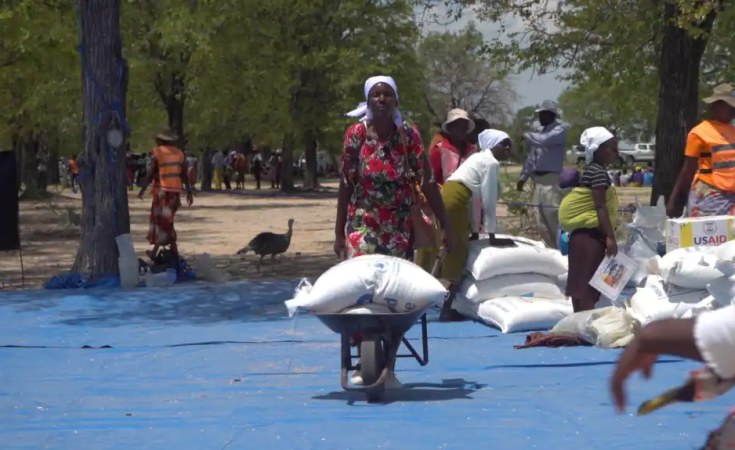Harare — The United Nations World Food Programme (WFP) has rolled out resilience building activities with support of the Government of Japan to boost food security and improve the livelihoods of nearly 9,000 people in Chiredzi district, in southern Zimbabwe. The funding, a US$ 900,000 contribution coming at a critical time, will help WFP to provide food assistance while at the same time stimulating local development through the construction of small-scale infrastructure such as small dams and nutrition gardens, the provision of training for farmers in agriculture and income-generation activities such as poultry and beekeeping, as well as land reclamation activities.
"We are grateful to Japan for its commitment to expanding the opportunities of vulnerable rural families," said Francesca Erdelmann, WFP's Country Director in Zimbabwe. "We are working with communities to transform rural areas, improving incomes for farmers and providing financial safety nets. Our goal is to ensure food security even for the future, and to do so, we would like agriculture to remain both an attractive and a viable option for the next generation."
Mindful of the multiple risks that people and ecosystems face, WFP brings together investments in infrastructure, insurance and financial inclusion for farmers and connects smallholder production to value-added food markets. This is contributing to sustainable rural livelihoods and enhancing protection against acute climate shocks, such as droughts or cyclones.
"I hope that the targeted communities in Chiredzi will, through the construction of community assets, training in various income-generation activities and restoration of degraded land, become more resilient to future climate shocks and economic challenges," said H.E. Satoshi Tanaka, Ambassador of Japan to Zimbabwe. "The goal is not only to support them in the current difficult situation, but also for them not to require assistance in the future."
WFP's community resilience initiatives combine two climate risk mitigation strategies to assist the people: better natural resource management through enhanced agricultural techniques to assure ongoing food production and diversifying their livelihoods to withstand climate shocks. In 2023, WFP will support more than 110,000 people through this integrated approach to rural resilience-building across the country.
The Government of Japan is one of WFP's top donors in Zimbabwe. In addition to funding WFP's resilience building initiatives, Japan has also supported WFP's emergency food assistance activities. The latest contribution brings Japan's total contributions towards WFP's activities in Zimbabwe to US$ 26 million since 2012, supporting food assistance and resilience-building for vulnerable communities.


